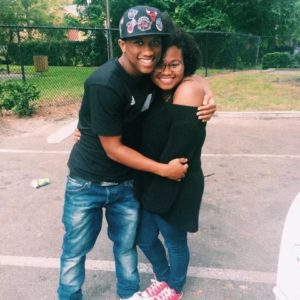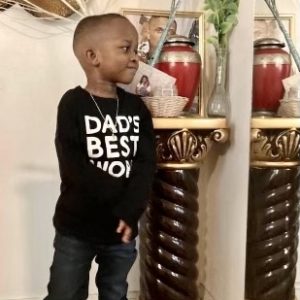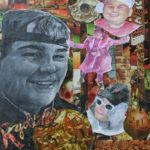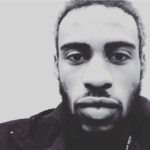
QuincyQ White was his mother’s golden child—literally.
“Some people called him ‘cinnamonny’ because he had the color of light cinnamon,” his mother, Theresa Madison, said. “I called him my sandy boy because he had the light hair and the light eyes, and his skin looked to me like it was sand.”
It just so happens that Quincy grew up in Florida, despite having been born in Philadelphia. When he was two years old, his family moved to the Orlando area and his childhood was filled with trips to Disney.
His siblings relocated back to Philly as they became adults. Theresa followed in 2017, and Quincy joined his family back in Philly the following year. That meant leaving Kaleb, his son, who was a year old at the time.

Quincy’s looks and his personality drew others to him, but he didn’t know how to tell good people from bad people. He was too trusting, Theresa said, and someone ultimately took advantage.
On March 13, 2020, Quincy was fatally shot inside a takeout place on 20th and Ridge in North Philadelphia. He was 25 years old. One arrest has been made so far.
“I always said Quincy was not part of this world because of his heart,” Theresa said. “He was very generous and caring, but he didn’t know how to turn it off. He was too approachable and he welcomed anybody into his life. I’d say, ‘Listen, you’re special. You can’t give all of what you got to everybody. Not everyone deserves a Quince.’ He’d say, ‘Mom stop it, everybody’s not bad.’ Now look at what happened to my baby.”
Born QuincyQ White, he primarily went by Quincy. He was Theresa’s fifth child out of seven, born Oct. 16, 1994 to she and Derrick White. As a child, Quincy was “Mr. Personality” — playful and fun. He also had a creative flair and enjoyed playing with color. Quincy learned how to crochet at an after school program, and as a teen, he designed and sold hats and sweaters.
“He was good with his hands in an artsy kind of way,” Theresa said.

Quincy and his sister
At St. Cloud High School in Florida, Quincy was a popular football player. He was also a talented writer and an aspiring rapper.
When Quincy was young, his parents split and Theresa and the kids stayed in a shelter. This had a strong impact on Quincy, and it planted a seed that he never had a chance to fulfill.
“His goal was to end homelessness. He wanted to make container homes where people could live, and they would be affordable,” Theresa said. “That drive came from the struggles we had when he was coming up. Life wasn’t easy.”
When Quincy moved back up to Philly, Theresa helped him get a job at Dwight’s Southern Barbecue, which was her first job. He met a woman there and began staying with her, despite Theresa’s pleas to come back home.
She thinks that if Quincy had survived his shooting it “would have been a wakeup call to stay home.”
Six months before Quincy’s death, he lost his best friend to murder in Orlando — he was stabbed to death over a woman. This threw Quincy into a tailspin of grief and despair.
The day before Quincy passed, Theresa spoke to him on the phone, then drove over to see him at his girlfriend’s house. He said he’d be home the following day, but he never made it. That was the last time Theresa saw him, hours before his murder.

Kaleb with Quincy’s urn
Theresa is grateful for the relationship she has with Kaleb, Quincy’s son, who is now 4 years old. Kaleb’s mom has brought him up to Philadelphia a few times, including in October to celebrate Quincy’s 26th birthday.
“Kaleb had a party for his daddy,” Theresa said. “He grabbed the microphone and was singing and dancing. There is some joy in the midst of this pain. If Quincy didn’t leave a baby, it would be so much harder.”
Theresa had Quincy cremated, and his remains are in an urn. Kaleb touches it and talks to Quincy, but doesn’t fully understand.
“I cremated him because I wasn’t ready to let him go,” Theresa said. “I brought him home and put him on the fireplace and said, ‘Now you can’t leave.’”
Resources are available for people and communities that have endured gun violence in Philadelphia. Click here for more information.










